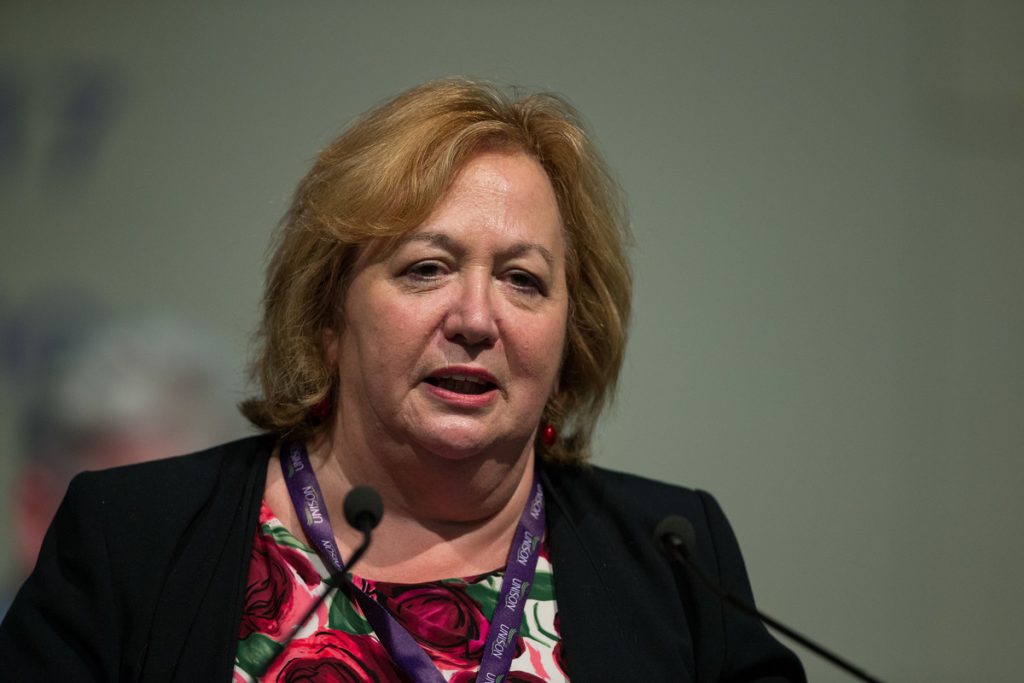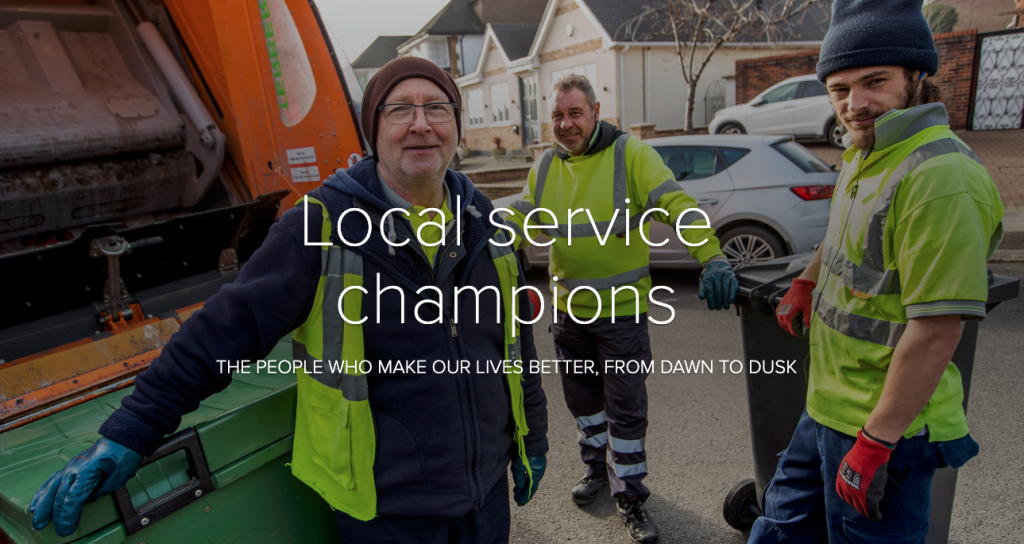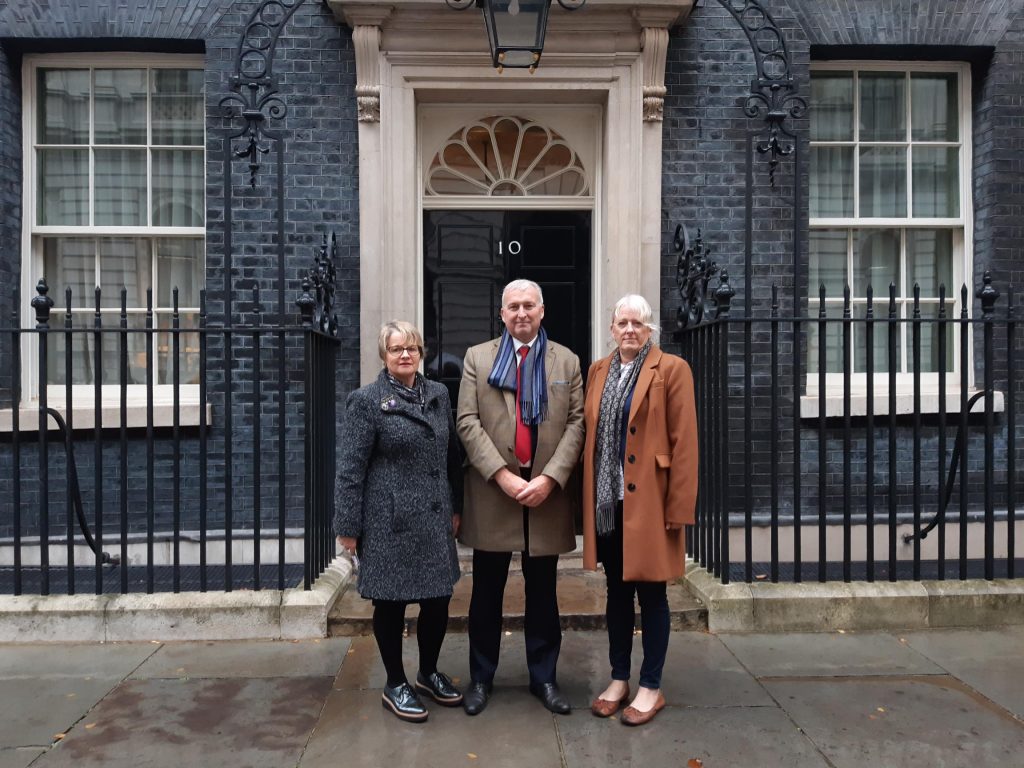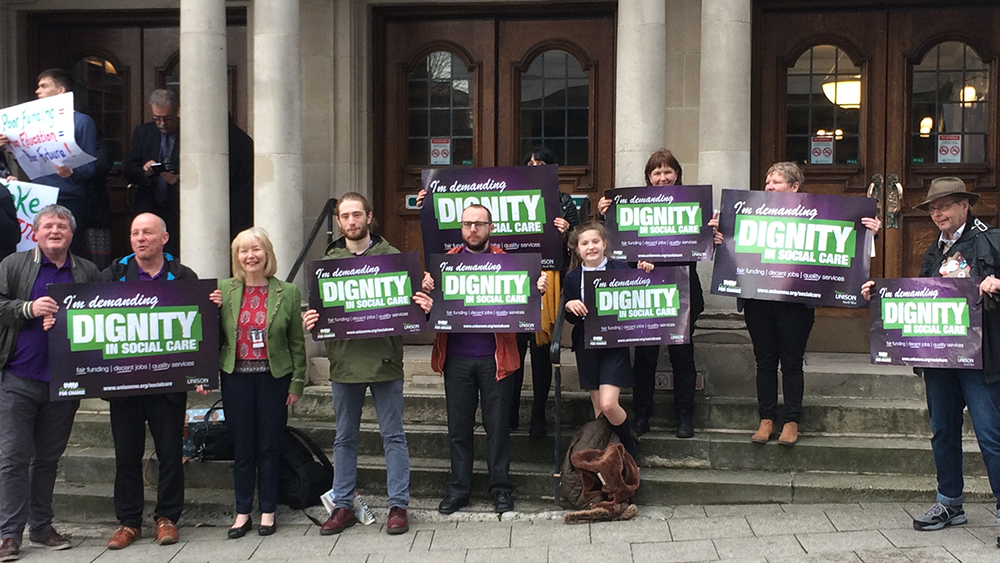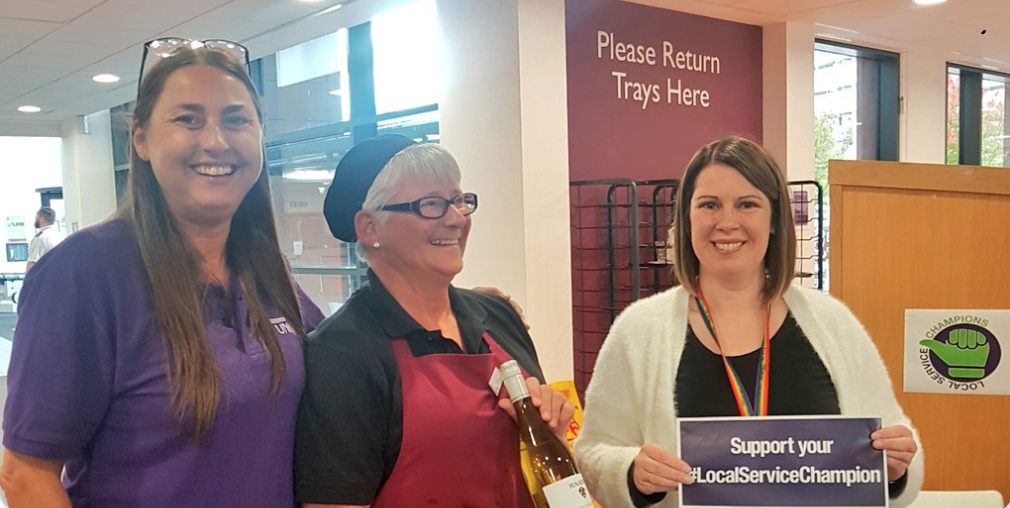Most women experience the menopause between the ages of 45 and 55 – in other words, while they’re working. Given that women make up more than 70% of UNISON’s 1.3 million members, it’s clearly a workplace issue and therefore a union issue that we should be leading the way on.
The menopause is a natural transition stage in most women’s lives, usually lasting between four and eight years, although it can be longer. It’s primarily marked by hormonal changes and the end of periods, which can also trigger a wide range of physical and psychological symptoms.
The menopause can also occur earlier for medical reasons and it also affects trans, non-binary and intersex people. In the workplace, the impacts can be exacerbated for disabled women by their disability and, for Black women, by racism and the prevalence of less secure working conditions among Black workers.
In 2017, the UK government’s equalities office published a review of the extent to which the menopause affects women’s economic participation. It reported that “significant numbers of working women experience problems at work as a result of individual symptoms …
“The evidence also paints a consistent picture of women in transition feeling those around them at work are unsympathetic or treat them badly, because of gendered ageism.”
For some UNISON members, menopause issues will cause difficulties at work and may even lead to discriminatory action by employers – so it’s something we need to start talking about before this happens. By agreeing good policies with employers, it’s likely that we can help reduce the number of cases requiring union representation.

Tracy Cunningham, a PCSO with Devon and Cornwall Police, says that the menopause made her feel as though she was ‘having a nervous breakdown’.
“I wasn’t sure what was going on,” she says. “I was struggling to concentrate and work was all getting too much. My sergeant at the time was a very young man who I had to try and talk to.
“At first, I made up a reason for going sick, but soon realised I needed to tell him the real reason why I was off work. I sat in his office sweating and feeling like I was old enough to be his mother.
“He was struggling to understand what I was talking about so I suggested that he go home and speak to his own mum and ask her about the menopause!”
“I went to my GP who was happy to prescribe HRT, which has helped a great deal.
If her manager already had this information, things may have been easier for Tracy, and she’s now working with UNISON to share more information with line managers in Devon and Cornwall Police.
A good model policy will highlight how UNISON values its members and recognises the specific problems that menopausal symptoms may cause. This is vital to recruitment, retention and activism – something worth remembering as we prepare to Go for Growth this November.
The Chartered Institute of Personnel and Development says that it shouldn’t be regarded solely as a female issue: “Organisations have a responsibility to create a stigma-free environment that encourages open discussion and disclosure; this will encourage women to not suffer in silence and [to] discuss the practical steps needed to support their full engagement and productivity at work.”

Jane Grebbie is the branch secretary for the Ysgrifennydd Cangen branch and, in recent years, has been heavily involved in work to spread awareness and understanding of the menopause and how it impacts on women in the workplace.
Jane had a medically induced menopause at 32 after having a hysterectomy for her endometriosis and the symptoms were so severe that she felt in danger of “stabbing people”.
“I’m a residential care officer and I work with the most vulnerable children in Wales, so I was regularly restraining children, in very hot environments, so having a hot flush in that environment wasn’t brilliant.
“I was very lucky, because of the environment I worked in, my staff team were more like my family than my own family were, so I was very lucky as I could get someone to change with me.
“I was lucky that they wrote a risk assessment – specifically for me – to get me out of situations where I was going to get heated, to give me the extra five minutes to go and cool off.”
But the menopause is rarely a fleeting experience.
“I’m still suffering menopausal symptoms,” explains Jane. “But they have now made a HRT that I am able to take, luckily enough, because it stops me stabbing people – and I mean that. Really. It was that intense, the emotions.”
Jane got involved with doing some work around the issue via the Wales TUC, when it had just begun some research and describes herself as lucky to have been involved from the start.
“Today, I’m lucky that we have menopause policies that fit in line with our sickness policies in Neath Port Talbot – and it’s something that I’m raising in Bridgend as a council member.
“I keep promoting it wherever I can and I deliver awareness sessions and try to impress on people that not everybody’s experience of the menopause is the same: some can sail through it, but for others, it can be particularly disadvantageous to work situations.”
On the work she’s done, Jane says that, perhaps counterintuitively, “some of the worst reactions I have are from young females, who don’t believe that it’s going to have so much of an impact.”
“However, some of the most surprising – and delightful – reactions I have in delivering sessions is from the men, who say they can see their partners, their mums or somebody suffering, but it was never discussed; it was never talked about; it was ‘one of those things’”
For Jane, that makes it all worthwhile. And further, “the male managers are the most proactive in getting me into their workplaces to deliver sessions to all of their staff,” she notes.
“The biggest session I’ve had was with schoolteachers – we offer the session, whether you’re a UNISON member or not, because we need to raise awareness across workplaces.
“We’ve had teaching assistants, on an inset day. And they’ve been giving me time on an inset day now and go into schools and deliver sessions and my last session in a school, I had 50 people in there and we were in a classroom and it was very, very much over-subscribed and I had people sitting on tables around the edges ‘cos they just wanted to be there.”
Jane is proud that, across the UK, her union, “is supporting this work and promoting it. The more we can raise awareness for various conditions, in relation to our health, the better outcomes we’re going to have in all our workplaces,” she concludes.
UNISON is preparing guidance for branches that will include a template for a workplace policy and also developing training on menopause awareness.
To read more and access resources, visit www.unison.org.uk/menopause
Other information and support
NHS
www.nhs.uk/conditions/menopause
www.nhs.uk/conditions/early-menopause
NICE guidelines on ‘Menopause: diagnosis and treatment’
www.nice.org.uk/guidance/ng23/ifp/chapter/About-this-information
Menopause Matters
www.menopausematters.co.uk
Women’s Health Concern
www.womens-health-concern.org
Daisy Network
www.daisynetwork.org
The Menopause Exchange
www.menopause-exchange.co.uk
CIPD guidance: ‘The Menopause at Work: a guide for people professionals’www.cipd.co.uk/Images/menopause-guide_tcm18-55426.pdf
The article “I felt like stabbing people – the emotions were that intense” first appeared on the UNISON National site.
from RSSMix.com Mix ID 8239598
https://www.unison.org.uk/news/article/2019/10/felt-like-stabbing-people-emotions-intense/
via
IFTTT
source
https://childrensplayareadesigns.tumblr.com/post/188408988337
